In the ever-evolving landscape of productivity and collaboration tools, Notion has quickly risen to prominence as a flexible, all-in-one workspace. Whether you’re an individual juggling tasks or a team managing a complex project pipeline, Notion offers a unified solution for note-taking, task management, knowledge base creation, and collaborative documentation.
But is it really the ultimate productivity tool it claims to be? In this in-depth Notion review, we’ll cover its core features, pricing, pros and cons, target users, and how it stacks up against competitors so you can decide if it’s the right fit for your workflow.
What the Software Does
Notion is a multi-purpose productivity platform that merges the functionality of note apps, databases, kanban boards, and task managers into a single workspace. Unlike other apps that limit you to predefined structures, Notion uses a modular block system that lets you customize pages freely.
Users can create and organize:
-
Notes
-
To-do lists
-
Knowledge bases
-
Wikis
-
Project dashboards
-
Databases with filters and relations
With support for both individual and team use, Notion serves as a digital workspace for organizing knowledge and managing projects. It’s accessible via web, desktop apps (Windows and Mac), and mobile apps (iOS and Android), with real-time sync across devices.
Key Features
Notion’s feature set is vast but highly intuitive once you get the hang of its structure. Here’s a breakdown of its most powerful tools:
Block-Based Editor
Everything in Notion is built using “blocks” text, images, checkboxes, embeds, tables, toggles, and more. This allows users to structure pages any way they want without rigid templates.
Custom Databases
Users can create relational databases with filters, tags, and views (calendar, table, kanban, gallery, list). This is perfect for building CRMs, content calendars, bug trackers, and more.
Templates
Notion offers hundreds of built-in and community-made productivity templates, including:
-
Meeting notes
-
Personal finance trackers
-
Team wikis
-
SOPs and documentation
Real-Time Collaboration
Notion allows multiple users to collaborate on the same document in real-time. With commenting, mentions, and page permissions, teams can stay aligned without needing external messaging tools.
Integration with External Tools
Although Notion doesn’t support native integrations like some competitors, it connects through platforms like Zapier, Make, and third-party Notion API wrappers. You can integrate with Google Calendar, Slack, GitHub, and more.
Web Clipper and Mobile App
The web clipper allows saving articles or bookmarks straight into your Notion space. The mobile app lets you take notes, check tasks, or review projects on the go.
Pricing Plans
One of the reasons behind Notion’s widespread adoption is its freemium pricing model, which offers enough features for personal use without cost.
Plan |
Price |
Features |
|---|---|---|
Free |
$0 |
Up to 10 guests, 5MB file uploads, limited blocks (personal use) |
Plus |
$8/user/month |
Unlimited blocks, unlimited guests, version history |
Business |
$15/user/month |
SAML SSO, advanced permissions, private teamspaces |
Enterprise |
Custom |
Audit logs, user provisioning, enterprise support |
Pros & Cons
To make a fair judgment, let’s look at both the strengths and weaknesses of Notion:
Pros
-
Highly customizable interface
-
Combines notes, tasks, and wikis in one tool
-
Excellent for project management with team collaboration features
-
A massive library of free templates
-
Cross-platform availability with real-time sync
Cons
-
Steep learning curve for beginners
-
Limited offline functionality
-
Large pages or databases can become slow
-
No native two-factor authentication (without third-party tools)
Target Audience
Notion’s flexibility makes it ideal for a wide range of users, but it truly shines in certain environments:
-
Freelancers & Creators: Create personal dashboards, track tasks, or manage portfolios
-
Startups & Remote Teams: Build internal wikis, SOPs, and project pipelines
-
Students & Researchers: Organize class notes, reading lists, and study plans
-
Content Marketers: Plan, write, and schedule blog posts with databases and kanban boards
However, it might not be the best fit for large enterprises with complex IT security requirements or regulated industries needing advanced compliance.
To a Known Competitor
To understand where Notion fits in the productivity landscape, let’s compare it with Evernote, one of its earliest and closest alternatives.
Feature |
Notion |
Evernote |
|---|---|---|
Notes & Docs |
✅ Advanced |
✅ Basic |
Task Management |
✅ Built-in Kanban |
❌ Minimal |
Custom Databases |
✅ Fully Customizable |
❌ No support |
Collaboration |
✅ Real-time |
✅ Limited |
Templates |
✅ Hundreds |
✅ Limited |
Offline Access |
❌ Limited |
✅ Strong |
Price-to-Value |
✅ High |
❌ Expensive for features |
Notion vs Trello
Trello is known for its simple kanban-style task boards, ideal for visual task management. While Trello is easy to use and great for small teams or individuals, it lacks the database flexibility and document creation that Notion offers.
Feature |
Notion |
Trello |
|---|---|---|
Task Views |
Kanban, Table, Calendar, Gallery |
Kanban only |
Notes & Wikis |
✅ Built-in |
❌ Not native |
Custom Databases |
✅ Advanced |
❌ No support |
Collaboration |
✅ Real-time, docs + comments |
✅ Real-time, cards only |
Templates |
✅ Extensive |
✅ Moderate |
Automations |
✅ Via integrations or built-in |
✅ Basic (Butler) |
Notion vs ClickUp
ClickUp positions itself as an all-in-one project management tool, similar to Notion. However, ClickUp leans more toward task tracking, time tracking, and Agile workflows, while Notion is more flexible with content creation and knowledge management.
Feature |
Notion |
ClickUp |
|---|---|---|
Task Management |
✅ Good |
✅ Excellent |
Docs & Wikis |
✅ Core strength |
✅ Add-on |
Time Tracking |
❌ Not built-in |
✅ Built-in |
Automations |
✅ Yes |
✅ Advanced |
Customization |
✅ High |
✅ High |
Speed & Performance |
🟡 Slower on large pages |
✅ Fast & responsive |
Notion vs Obsidian
Obsidian is a markdown-based note-taking app designed for personal knowledge management. It’s built for offline use and is preferred by users who value privacy and local file storage. Notion, on the other hand, is cloud-based and better for collaboration.
Feature |
Notion |
Obsidian |
|---|---|---|
Cloud Sync |
✅ Native |
❌ Optional (via sync plugin) |
Collaboration |
✅ Excellent |
❌ Single-user only |
Markdown Support |
✅ Good |
✅ Native |
Custom Databases |
✅ Advanced |
❌ Not supported |
Offline Use |
🟡 Limited |
✅ Full offline access |
Notion vs OneNote
Microsoft OneNote is a traditional note-taking tool that mimics a physical notebook, offering hierarchical organization and deep Microsoft 365 integration. Notion, by contrast, provides more structure, customization, and team collaboration features.
Feature |
Notion |
OneNote |
|---|---|---|
Notes & Wikis |
✅ Structured, customizable |
✅ Classic notebook style |
Task Management |
✅ Moderate |
❌ Minimal |
Collaboration |
✅ Real-time |
✅ Via OneDrive |
Databases |
✅ Core feature |
❌ None |
Integration |
✅ Broad (Zapier, APIs) |
✅ Strong in Microsoft ecosystem |
Notion vs Jira
Jira is built specifically for software development and Agile workflows, offering features like Scrum and sprint planning. Notion can be adapted for these workflows but lacks deep Jira-style development tracking features out of the box.
Feature |
Notion |
Jira |
|---|---|---|
Agile Support |
🟡 Custom setup needed |
✅ Built-in |
Issue Tracking |
✅ Basic |
✅ Advanced |
Time Tracking |
❌ Not native |
✅ Native |
Developer Tools Integration |
🟡 Limited |
✅ Extensive (Bitbucket, GitHub, etc.) |
Wiki / Docs |
✅ Native |
✅ Confluence integration |
Notion vs Asana
Asana is a work management tool designed for clear task hierarchies, deadlines, and team collaboration. Notion offers more flexibility but can lack Asana’s focused task flow and built-in project overviews.
Feature |
Notion |
Asana |
|---|---|---|
Task Management |
✅ Customizable |
✅ Structured |
Views |
✅ Multiple (Kanban, Calendar, Table) |
✅ Multiple |
Collaboration |
✅ Strong |
✅ Strong |
Docs & Notes |
✅ Core strength |
🟡 Limited |
Automation |
✅ Good |
✅ Good |
Notion vs Airtable
Airtable is a spreadsheet-database hybrid that shines in organizing data with rich field types, filtering, and automation. Notion also supports databases, but its strengths lie in page content and layout rather than just structured data.
Feature |
Notion |
Airtable |
|---|---|---|
Database Power |
✅ Strong |
✅ Very strong |
Task Management |
✅ Customizable |
✅ Good |
Templates |
✅ Extensive |
✅ Extensive |
Docs & Content |
✅ Built-in |
❌ Add-on |
Automation |
✅ Moderate |
✅ Advanced |
Final Verdict: Is It Worth It?
Is Notion worth using in 2025? Absolutely if flexibility, collaboration, and customization are your priorities.
Its unique block-based structure lets you build exactly what you need from a basic to-do list to a fully functioning CRM. While it does come with a learning curve and minor performance issues for very large pages, the benefits far outweigh the downsides for most users.
For individuals, it’s a free and powerful alternative to multiple productivity apps. For teams, it’s an affordable collaboration hub with wiki, docs, and project tracking capabilities in one place.

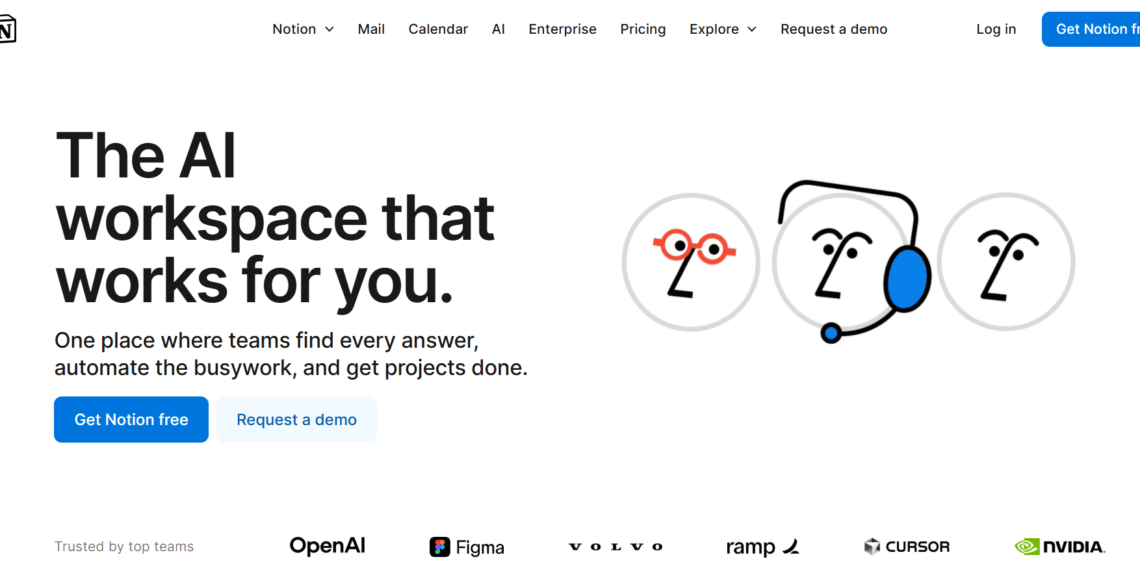
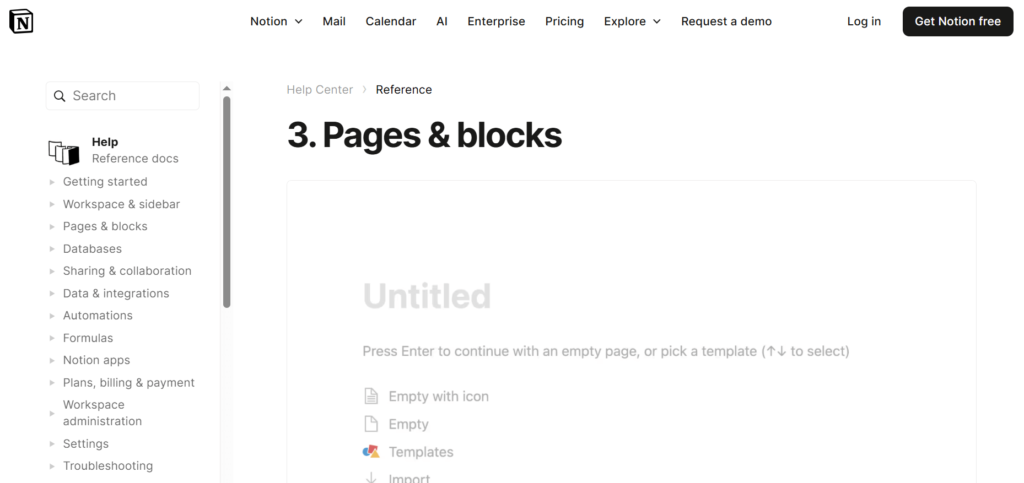
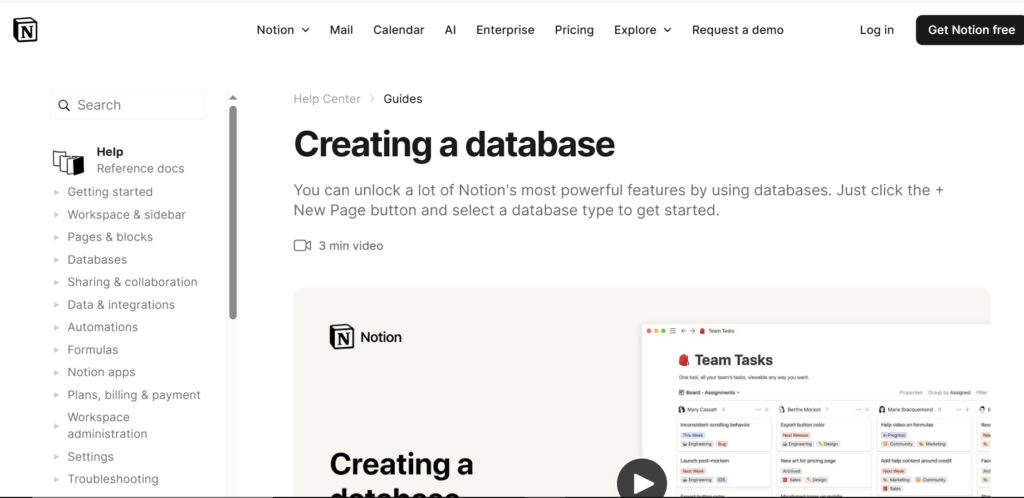
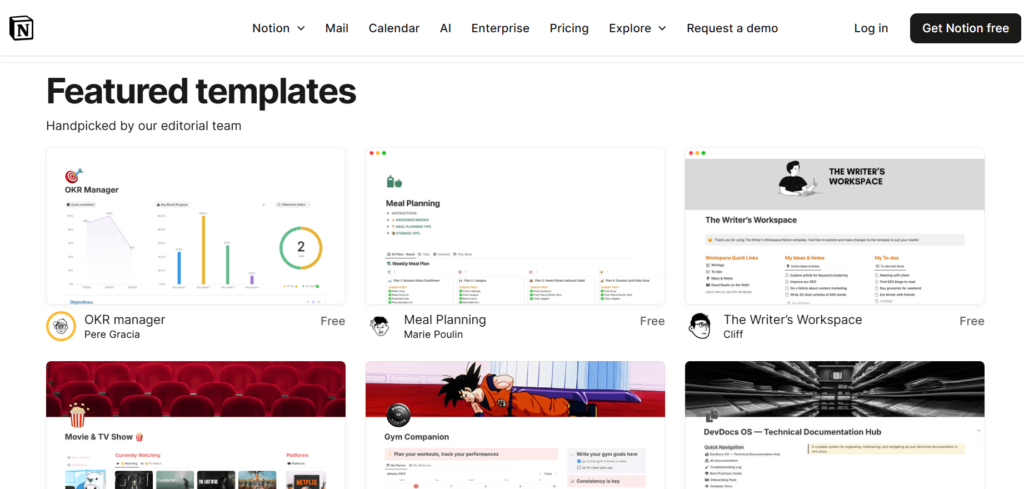
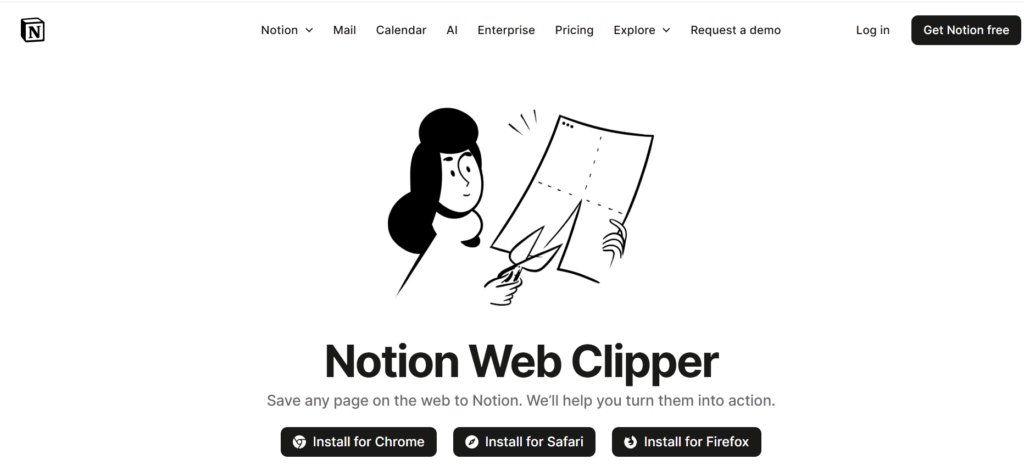





![HubSpot CRM Review: Is It Worth It in 2025? [Full Expert Breakdown]](https://radical.fm/wp-content/uploads/2025/08/1-10-360x180.png)

